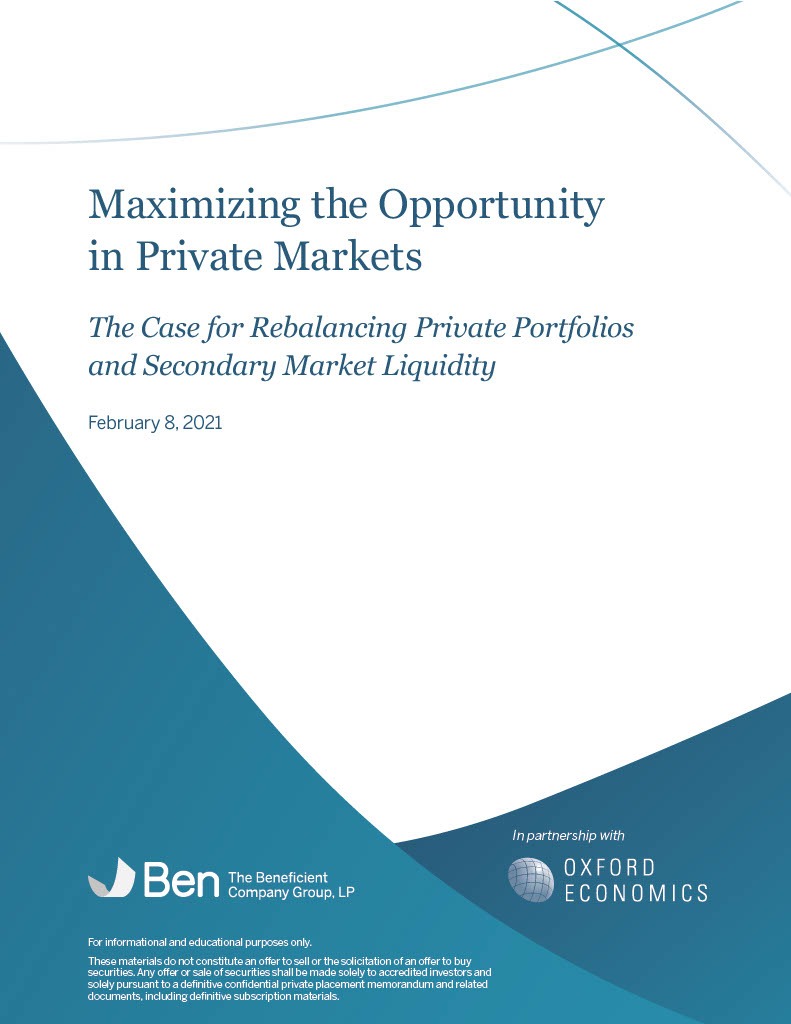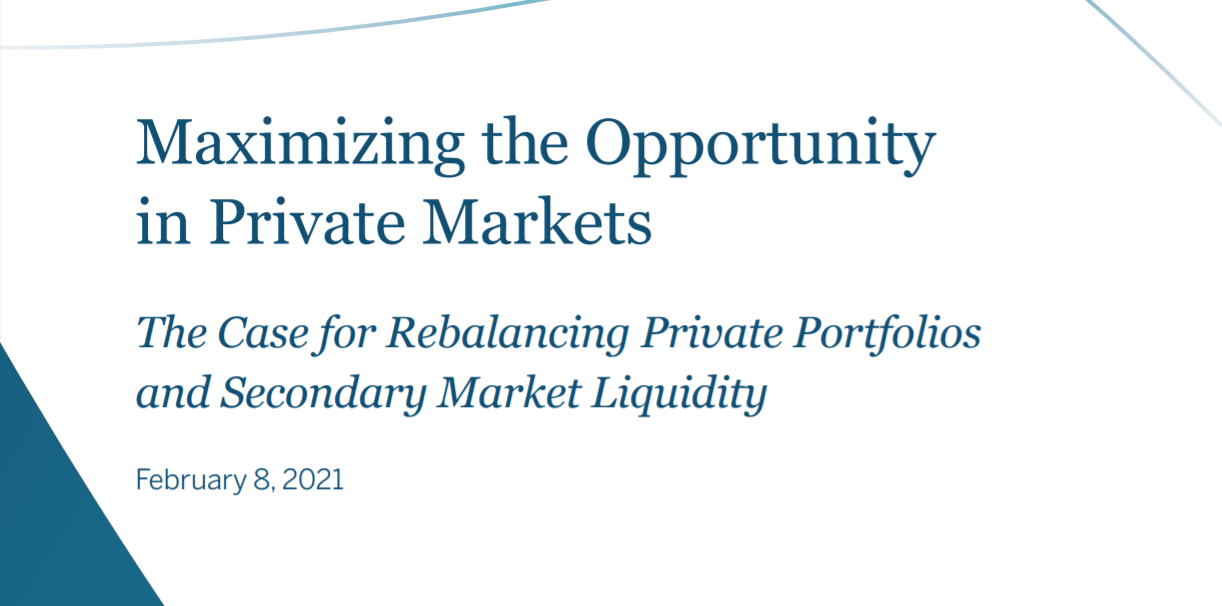Experts at The Beneficient Company Group, L.P. (Ben) and Oxford Economics recently took a focused look at the alternative investment landscape and developed four key perspectives on portfolio allocation strategies in private markets. These strategies show the importance of rebalancing private portfolios and assert the need for secondary market liquidity.
1. Investing During the Next Five Years is Likely to be Characterized by Low Nominal Returns and Uneven Asset Performance
- Our analysis suggests that the hardest-hit sectors during the pandemic such as real estate and natural resources could benefit from a rebound in valuations.
- On the other hand stretched equity valuations suggest caution when allocating towards venture capital strategies in the near-term.
2. Active Portfolio Allocation Strategies for Alternative Assets can be a Source of Performance
- Allocating to a specific strategy does not appear as rewarding when adjusted for risk and compared with a diversified portfolio of private assets.
- Strategic rebalancing and tilting a portfolio towards certain fund strategies and sectors can be a source of outperformance.
3. Scenario Analysis is an Important Tool to Managing Risk and Uncertainty at All Stages of the Economic Cycle
- For a defensive portfolio, we foresee benefits from an overweight in private debt funds, which historically offer relative value over public debt.
- Venture capital and private real estate prove to be particularly susceptible to our downside scenario analysis.
4. Portfolio Construction and Rebalancing Around Market Cycles can Benefit Private Asset Investors
- We expect investors will continue to recognize the illiquid nature of private funds as a potential source of risk.
- Trend towards greater transparency in private markets will continue to generate increased demand for early liquidity.
To gain a deeper insight into how these portfolio allocation strategies work, review the complete report, “Maximizing the Opportunities in Private Markets.”
Within this report, Ben’s proprietary Total Portfolio Management framework is utilized to illustrate two forecasts that demonstrate opportunities available to enable investors who hold diversified portfolios of private assets and liquidity options to execute rebalancing strategies.
Additionally, Ben strives to provide rapid, cost-effective liquidity at potentially higher advance rates which may provide the opportunity needed to support your portfolio investment goals.
The information in this material and/or any other documents or information provided by The Beneficient Company Group, L.P. (Ben) does not constitute an offer to sell or the solicitation of an of an offer to purchase any securities of Ben or any of its affiliates. Offers to sell or purchase any security can only be made through definitive Offering Materials and subscription agreements with the applicable investor.
Subject to Qualification. Securities products are offered through Emerson Equity, LLC. Member FINRA/SIPC. Ben and Emerson Equity, LLC are separate, unaffiliated entities.
Neither asset allocation nor diversification guarantee against loss. Neither Ben nor any of its affiliates or representatives (i) makes any express or implied representation or warranty as to the accuracy or completeness of the information contained in these materials, or (ii) shall have any liability resulting from your use of these materials. These materials are not intended to provide the sole basis for evaluating any transaction with Ben or any other matter.
The views and opinions expressed are those of the panelists and do not necessarily reflect the official policy or position of Ben or Oxford Economics. The information in this material is not intended to replace any information or consultation provided by a financial advisor or other professional nor shall be perceived to constitute financial, legal, accounting or tax advice.
These materials contain certain estimates, projections and forward-looking statements that contain substantial risks and uncertainties. The estimates, projections and forward-looking statements contained herein may or may not be realized, accurate or complete, and differences between estimated results and those realized may be material. Such estimates, projections and forward-looking statements are illustrative only and reflect various assumptions of Ben’s management concerning the future performance of Ben and its affiliates, and are subject to significant business, economic and competitive uncertainties and contingencies, many of which are beyond Ben’s control.
Except as otherwise noted, the materials speak as of December 2020. Neither Ben nor any of its affiliates or representatives undertakes any obligation to update or revise any of the information contained herein or to correct any inaccuracies which may become apparent.

 Samuel Hikspoors, PhD
Samuel Hikspoors, PhD
Credit Risk Officer & Managing Director, Beneficient
 Innes McFee
Innes McFee
Chief Global Economist, Oxford Economics
 Alessandro Theiss
Alessandro Theiss
Associate Director, O

